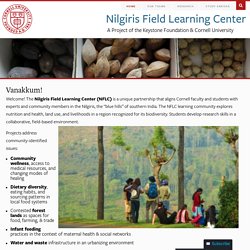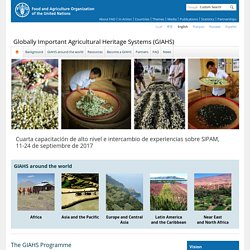

International Partnership for the Satoyama Initiative. Community Development and Knowledge Management for the Satoyama Initiative. Welcome to UNU-IAS - Institute of Advanced Studies. Biosphere. Keystone Foundation. Platform for Agrobiodiversity Research. Biosphere Reserves, their Function and their Benefits.
Biosphere Reserves are areas of terrestrial and coastal ecosystems promoting solutions to reconcile the conservation of biodiversity with its sustainable use.

Biosphere Reserves are internationally recognised, nominated by national governments and remain under sovereign jurisdiction of the states where they are located. Biosphere Reserves serve in some ways as ‘living laboratories’ for testing out and demonstrating integrated management of land, water and biodiversity. A Project of the Keystone Foundation & Cornell University. Welcome!

The Nilgiris Field Learning Center (NFLC) is a unique partnership that aligns Cornell faculty and students with experts and community members in the Nilgiris, the “blue hills” of southern India. The NFLC learning community explores nutrition and health, land use, and livelihoods in a region recognized for its biodiversity. Students develop research skills in a collaborative, field-based environment. Projects address community-identified issues: Community wellness, access to medical resources, and changing modes of healingDietary diversity, eating habits, and sourcing patterns in local food systemsContested forest lands as spaces for food, farming, & tradeInfant feeding practices in the context of maternal health & social networksWater and waste infrastructure in an urbanizing environment.
Globally Important Agricultural Heritage Systems (GIAHS) Worldwide, specific agricultural systems and landscapes have been created, shaped and maintained by generations of farmers and herders based on diverse natural resources, using locally adapted management practices.

Building on local knowledge and experience, these ingenious agri-cultural systems reflect the evolution of humankind, the diversity of its knowledge, and its profound relationship with nature. These systems have resulted not only in outstanding landscapes, maintenance and adaptation of globally significant agricultural biodiversity, indigenous knowledge systems and resilient ecosystems, but also food and livelihood security for millions of poor and small farmers in a sustainable manner.
In order to safeguard and support the world’s agri-cultural heritage systems, in 2002 FAO started an initiative for identification and the dynamic conservation of Globally Important Agricultural Heritage systems (GIAHS).